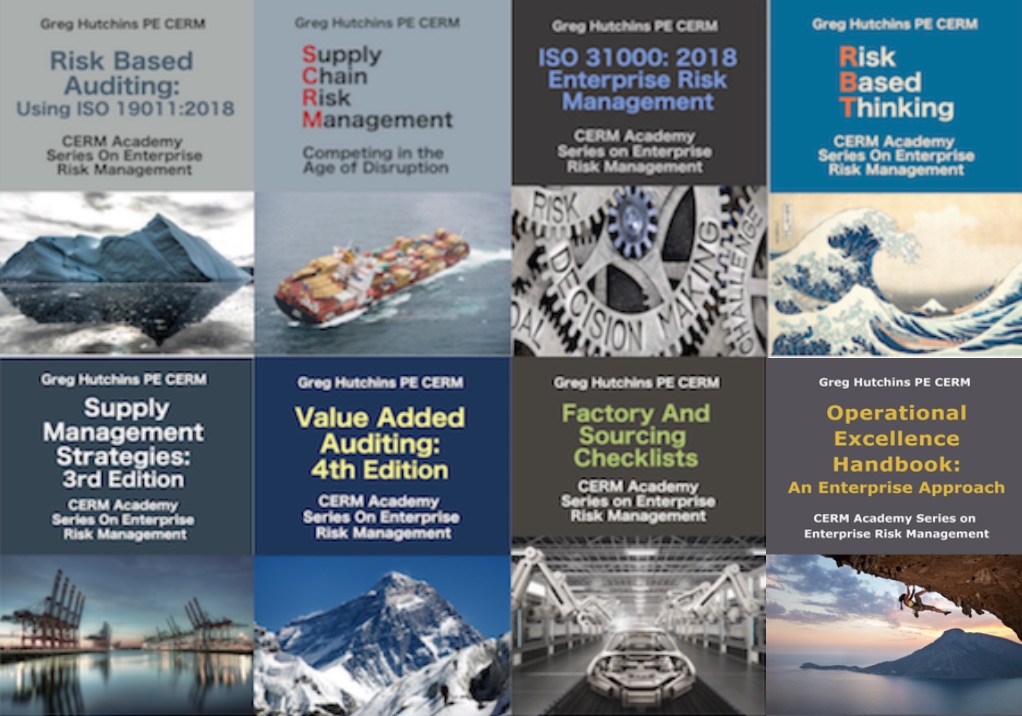 One of the hardest things about modern healthcare is the amount that we expect from the patients. Patients are now expected to be actively involved in their care and treatment decisions and to make multiple follow ups with different people at different places. While I see some organizations trying to buck this trend and consolidate care I am more concerned about the people who are sick and need care now. Continue reading
One of the hardest things about modern healthcare is the amount that we expect from the patients. Patients are now expected to be actively involved in their care and treatment decisions and to make multiple follow ups with different people at different places. While I see some organizations trying to buck this trend and consolidate care I am more concerned about the people who are sick and need care now. Continue reading
Category Archives: Life@Risk™ –
#13 – MUST KNOW RISK FACTS FOR QUALITY AND ALL PROFESSIONALS – GREG HUTCHINS
 In Against the Gods: The Remarkable Story of Risk, the author says the mastery of risk is the foundation of modern life and is what divides modern from ancient times. By consciously or unconsciously calculating probabilities, quality professionals make intelligent decisions about business processes.[i] First let’s look at a few definitions of risk. Continue reading
In Against the Gods: The Remarkable Story of Risk, the author says the mastery of risk is the foundation of modern life and is what divides modern from ancient times. By consciously or unconsciously calculating probabilities, quality professionals make intelligent decisions about business processes.[i] First let’s look at a few definitions of risk. Continue reading
#12 – BS WITH COLLEGE – GET BADGED – DIY EDUCATION – MARGAUX/GREG HUTCHINS
CLICK BELOW LINK.
BS with College. Get Badged. DIY Education
Bio:
Greg Hutchins PE and CERM (503.233.101 & GregH@QualityPlusEngineering.com) is the founder of:
CERMAcademy.com
800Compete.com
QualityPlusEngineering.com
WorkingIt.com
He is the evangelist behind Future of Quality: Risk®. He is currently working on the Future of Work and machine learning projects.
He is a frequent speaker and expert on Supply Chain Risk Management and cyber security. His current books available on all platform are shown below:
#12 – “HELP, I’M BEING DISCHARGED” – THOMAS LILLEY
 Leaving the hospital for the first time or with a new condition can be a scary proposition. In fact a decent percentage of readmissions are caused by inadequate preparation for discharge. http://blog.aarp.org/2013/02/14/leaving-hospital-heed-care-tips-or-you-may-be-back/ Continue reading
Leaving the hospital for the first time or with a new condition can be a scary proposition. In fact a decent percentage of readmissions are caused by inadequate preparation for discharge. http://blog.aarp.org/2013/02/14/leaving-hospital-heed-care-tips-or-you-may-be-back/ Continue reading
#13 – PREVENTING POOR COMMUNICATIONS AMONG YOUR HEALTH PROVIDERS WILL MAKE YOU HEALTHIER – THOMAS LILLEY
 Every time you receive healthcare you place your life in the hands of a team of health professionals who want to make you better. The doctors, pharmacists, nurses and other professionals should work together to achieve health or alleviate suffering without committing harmful mistakes. This is the Hippocratic Oath: “First, do no harm.”
Every time you receive healthcare you place your life in the hands of a team of health professionals who want to make you better. The doctors, pharmacists, nurses and other professionals should work together to achieve health or alleviate suffering without committing harmful mistakes. This is the Hippocratic Oath: “First, do no harm.”
But, to work together and make you healthy, your health care team needs to communicate well. Continue reading
